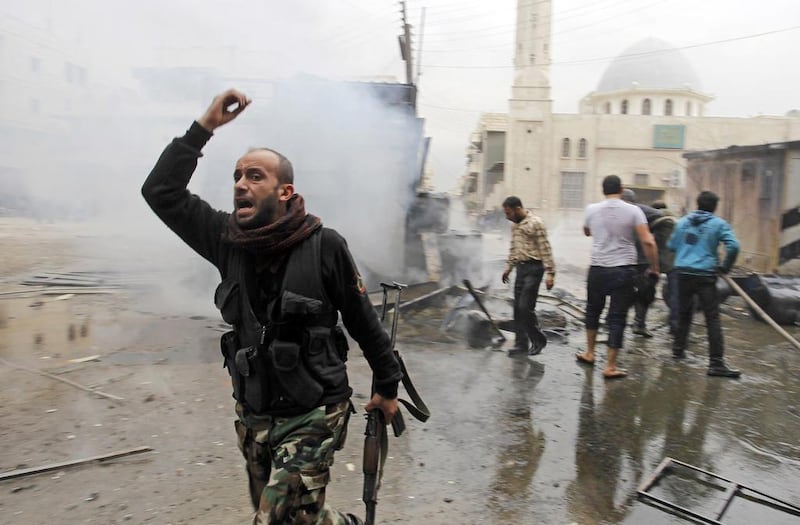GENEVA // The United Nations’ first humanitarian airlift to Syria from Iraq will deliver food and winter supplies to the mostly Kurdish north-east this week with the permission of both governments.
The airlifts will begin on Thursday and see Ilyushin-76 cargo planes deliver aid for at least two cities in Syria from Erbil in northern Iraq, the UN’s refugee agency said yesterday.
Up to 12 flights are scheduled until Sunday, said Amin Awad, director of the UNHCR’s Middle East and North Africa Bureau.
United Nations agencies have ferried limited aid supplies into Syria from Iraq and Lebanon, but not via Turkey because of objections from President Bashar Al Assad’s government.
Ankara has cut off diplomatic relations with Damascus and backed militants seeking to overthrow Mr Al Assad’s government.
The three-year struggle has seen more than 100,000 people killed.
Syria gave permission about two weeks ago for the cross-border UN operation, which had initially envisaged aid lorries entering the country via the Yarubiya border crossing, a less costly option than the flights, Mr Awad said.
“As the situation was very complicated, negotiating with many factions, we shifted to an airlift,” he said.
Two Kurdish militant groups maintain at least partial control over large parts of north-east Syria. However, their alliances are unclear and they could present a security threat to overland aid convoys.
The cities of Hassakeh and Qamishli are to receive food and relief items as a harsh winter sets in, Mr Awad said. The cargo will also include blankets, kitchen sets, plastic tarpaulins for shelter, sleeping mats and jerry cans.
“The number of vulnerable people in Hassakeh is estimated at 50,000-60,000 but we are still doing assessments. Hassakeh has been out of reach for a long time,” Mr Awad said.
He added that the UN was still “lining up airlines that are willing to fly into that part of the country”.
The UNHCR says about 6.5 million people have fled their homes within Syria and 2.3 million have sought refuge abroad from widespread fighting between rebels and Syrian regime forces.
Syria’s army yesterday turned its sights on the town of Yabrud, the last rebel stronghold in the strategic Qalamoun region near the border with Lebanon, as it moved to open a key motorway to Damascus.
The town is believed to be where a group of nuns from the historic Christian hamlet of Maalula have been transferred, reportedly in the hands of fighters from the Al Nusra Front.
The women appeared on Friday in a video, apparently in good health and denying they had been kidnapped.
It was unclear who was filming the video, and whether the nuns were speaking under duress. They were dressed in their traditional black robes and head coverings, but none were wearing their usual crucifixes.
They told the camera that a group had “brought us here and protected us”, adding they were “very, very happy” and safe.
The advancing army is trying to capture the strategic Qalamoun region and sever rebel supply lines that run across the border with Lebanon.
Meanwhile, the families of two Spanish journalists missing in northern Syria announced that they had been kidnapped in September by fighters linked to Al Qaeda.
Reporter Javier Espinosa, who works for El Mundo newspaper, and freelance photographer Ricardo Garcia Vilanova are believed to have been kidnapped at a checkpoint in Raqqa province.
They were just a few kilometres from the border with Turkey and were trying to leave Syria when they were abducted.
Despite indirect contact with the kidnappers, which resulted in information last month suggesting the pair are still alive, there has been no progress towards their release, nor any demands made.
Mr Espinosa’s wife, speaking at a press conference in Beirut, noted that the journalists had braved the fierce conflict to report on the plight of Syrians.
“They have done so because we believe the Syrian people need our work, and that we must live up to our responsibility,” she said.
“Javier and Ricardo are not your enemy. Please, honour the revolution they protected, and set them free.”
Fifty-five journalists have been killed and 30 are still missing in Syria.
* Agencies





